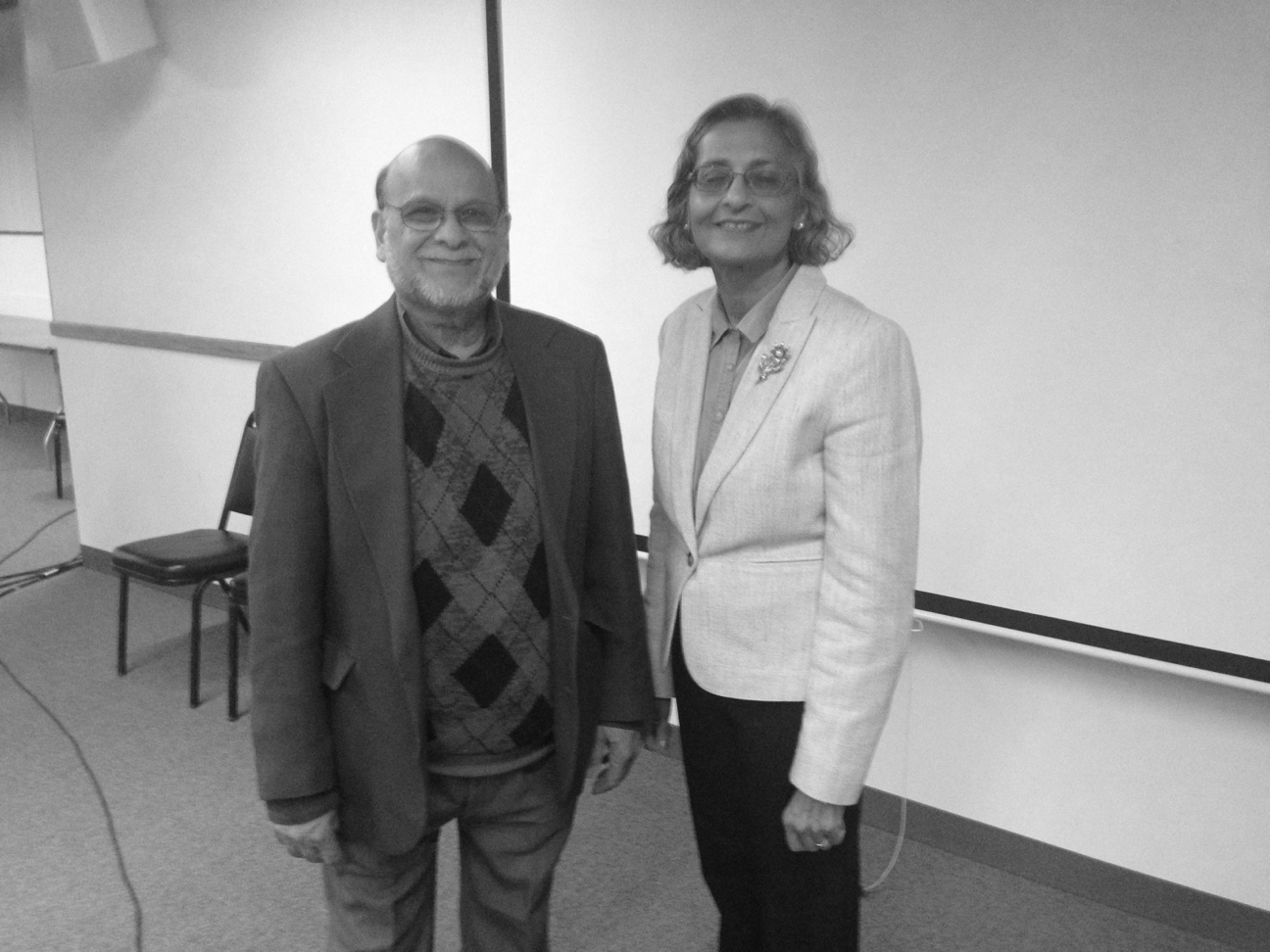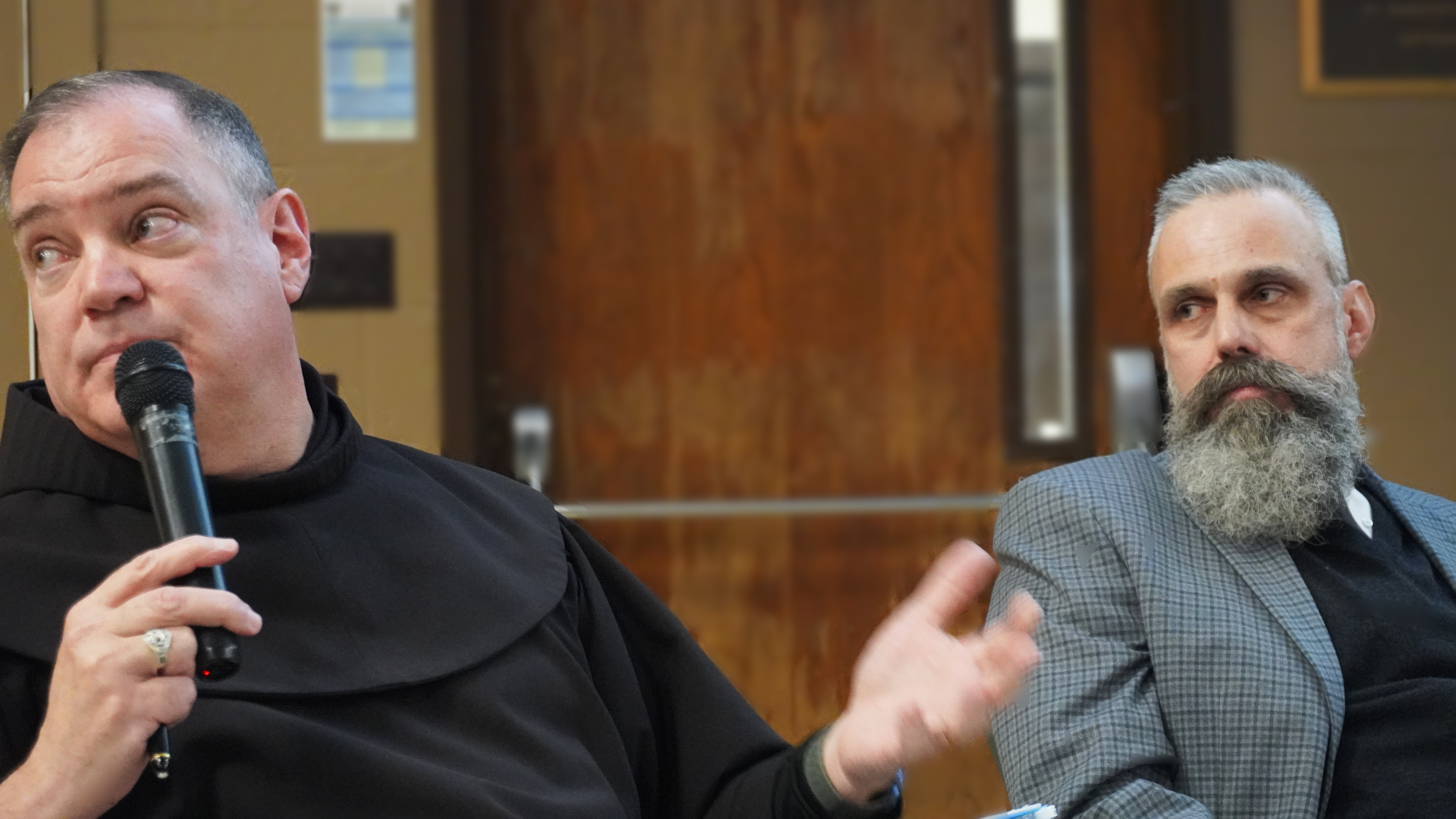By Hannah Gordon
Managing Editor
Muslim couple, professors at St. Bonaventure University, spoke about gender roles in Islam, their experience as Muslims and how they’ve raised their children according to their faith.
On Wednesday, Durriya Khairullah, Ph.D., professor of marketing, and Zahid Khairullah, Ph.D., professor of business, gave a lecture entitled “Women and Men in Islam” in the William F. Walsh Amphitheater.
“Both men and women in Islam are supposed to be modest in their dress code,” Durriya said.
She led most of the lecture, with an introduction to Islam and interjections from Zahid.
Zahid came to America from India nearly 40 years ago; Durriya came nearly 37 years ago. They made the distinction between what is an Islamic practice and what is a cultural practice. For example, Durriya said the Qur’an, Islam’s holy book, does not state women must cover their faces. However, it is common to see full face coverings in some Middle Eastern countries.
Durriya also covered marriage in Islam, saying that women had complete control over whom they married and when. She quoted the Qur’an on multiple occasions.
“Women ask men for a dowry, and she can ask anything she wants,” Durriya said. “She can ask cash; she can ask a house; or anything. If the man does not agree, then perhaps they come to a mutual understanding…Marriage is a contract between a man and a woman, so if a woman does not agree, then the marriage does not take place.”
The lecture lasted about 25 minutes, and then the Khairullahs opened the floor for a question period, which lasted about half an hour.
Bob Donius, professor of Franciscan studies, asked the couple to talk about raising their daughters and navigating the world of dating with them. Durriya said that her daughters weren’t allowed to date. Zahid said they allowed their daughters to meet a few times with a prospective partner and then decide if he was compatible.
The crowd whispered, seemingly confused by the idea of not dating, but a Muslim student spoke up and said she and her siblings don’t date either.
“It’s not a weird concept,” she said.
Met with further questions from students, Zahid compared his family’s lifestyle with other Muslim cultures.
“Today, particularly in urban areas, it is more common for men and women to go out more often [before engagement]” said Zahid.
Durriya agreed, but said that it is more common for women to be “flogged” more than men for sexual activity outside of marriage because of the surrounding culture.
The final question of the night was from a student.
“Do you find it hard to practice (Islam) in America?”
“Not really. Depending on where you are. In some cases I’d say there is some misunderstanding and misconception,” Zahid responded. “Particularly now when there [are] some anti-Muslim feelings, that makes for some people an issue. But, in general, I have found—we have found—that people are very accommodating.”
gordonhr13@bonaventure.edu







